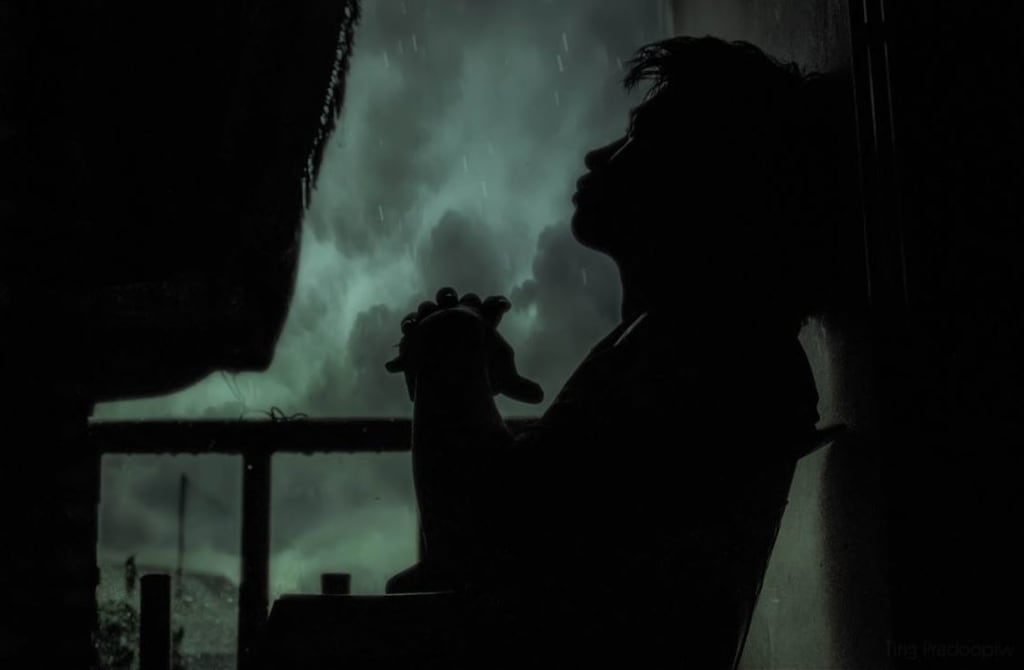Facing an Invisible Foe
Understanding Anxiety from the Inside Out

When you struggle with anxiety, the things most people take for granted become overwhelming obstacles. It affects so much about your entire life; your schedule, how you interact with your family, how many—if any—friends you have, how you interact with your spouse and your children, even affecting your job and career path.
Growing up I knew that I was…different. I had a fundamental understanding that I reacted differently to certain situations than other kids my age. I kept my circle of friends rather small, which doesn’t sound like a big thing, but that meant that from kindergarten to probably 6th grade I had one friend. I did not like crowds, which consequently meant I didn’t get invited to a lot of parties—not that I would have been keen to go because it would have interrupted my regularly scheduled routine of avoiding people altogether.
Getting into junior high and high school, my circle of friends gradually grew to encompass about ten people, of which there was a rotating cast in my life of really no more than five at a time. When we all got together, I would usually single out my best friend and hang out exclusively with them, staying on the edge of the party proper. This doesn’t sound like a big thing, but trust me, I’m about to come back to this point.
When I got into the working world, I found I liked jobs that let me deal with one person at a time, maybe two. I delivered pizzas for a living for about a year and I like that. My interactions with customers lasted approximately two minutes and I was able to retreat to my truck and be alone again. I did customer service for a little less than a year after that, and then I went into law enforcement working in records…meaning while I got to contribute to the overall effort of policing a community, I did it from behind a desk, in a secured office, in a cubicle. After doing that for a while, I got promoted to the telephone reporting unit, where I was actually taking the reports from citizens, rather than just processing the reports of police officers. This also put me on shift work and here is where it really hit home that I had an issue.
They were doing what is called a “warrant round up” where the court called people who had minor warrants like traffic citations and other minor offenses that needed to be taken care of in the court, or there would be a warrant for their arrest. So a large mass of people came to the court, and that line stretched out the door and in front of my office. I was on my lunch break, working the late shift so it was just me working on that floor, and opened our office door to a large mass of people.
In my head this was wall to wall, packed shoulder to shoulder, and blocking me in entirely. I did not handle it well. I recall finding myself with my back against my desk, in my office, my heart pounding against the inside of my chest, in a cold sweat. I sincerely don’t remember going from the front door to the cubicle, but there I was.
So there I was, having what I thought was my very first panic attack, and made a conscious decision to try and beat this weird, intangible fear. I mean, eventually I would. I needed to suffer a few more emotional blows before I challenged the unknown. Within a handful of years, I found myself without a job on a train to Washington State, where I would spend the next eight months of my life trying to figure it all out. If it feels like I skipped some stuff, I did and I will get back to that.
In Washington, I found myself with no car, no apartment of my own, and no job. I was starting from less than scratch. So I had to find a way to get around that wouldn’t pester my few friends, which meant the local bus system. While that wasn’t bad, it did put me on some packed busses and some old feelings of tightening of chests and the overwhelming, suffocating sense of dread that came with it. Yet I surprised myself and survived. Eventually, I came home to Texas, feeling that I just wasn’t where I needed to be. I came home and first got a job watching kids at a local daycare, then moved on to working for the sheriff’s office fingerprinting incoming prisoners. Now if neither of these jobs sound like something someone with anxiety issues should do, you’re probably right. But it was also part of my “Need to face my fears” campaign I was wading against myself. I was now getting around to challenging myself. It was during this time that I met my wife and son. I then pushed myself even harder (or so I thought) by becoming a corrections officer, feeling like looking over masses of inmates somehow helped put to bed the abject terror I felt way back when.
My son also has issues with anxiety, and it was through helping him with that. I received some insight about why I was the way I was, but even then, I hadn’t put it all together. No, the final component to all of this came this year (2018) when I met with old classmates from my graduating class and we discussed plans for our 20 year reunion. Going through a list of names and me armed with our year book we tried to figure out who was who and while the four other people on the committee reminisced with each name, I found myself looking at a book of strangers. Who were these people? I’d never heard of them. We covered a few of my direct friends, and a few names I remembered because we’d been in the same school system, the same classes since kindergarten, but for the most part, I didn’t know any of them.
I barely knew the people I was sitting with at the table. That night, I went home and started thinking about why I barely knew anyone. Like I said, I kept to myself, I didn’t interact with a bunch of people, my circle of friends I was comfortable around was small. Then I started remembering the meltdowns and the panic attacks, how often I avoided situations just to keep those feelings at bay. When I was much younger, I could brag that I could take care of all of my errands on my day off before ten o’clock. That’s because ten o’clock is when almost everyone else was out and about and I didn’t want to deal with people.
That circle of friends I talked about? Most of them were younger than me, so they weren’t in my graduating class. Of peers my age, my friends out of my graduating class, there were three. We had over 220 graduates in our class.
Those challenges to myself, I left Washington. Working in the daycare and jail placed me in a position of authority and over those crowds. I was no more a part of the crowd than I ever was. Honestly I still don’t like crowds. Stressful situations bring back all those old feelings of panic and chest tightening, and a headache so bad it’s like your brain is in a vice. Luckily I had people in my life to help me through it. My wife is understanding and supportive, and I know for a fact that not everyone dealing with anxiety issues has that.
So if my story sounds familiar, I want to share some information with you.
The Mayo Clinic has this to say on Anxiety:
“Experiencing occasional anxiety is a normal part of life. However, people with anxiety disorders frequently have intense, excessive and persistent worry and fear about everyday situations. Often, anxiety disorders involve repeated episodes of sudden feelings of intense anxiety and fear or terror that reach a peak within minutes (panic attacks).
These feelings of anxiety and panic interfere with daily activities, are difficult to control, are out of proportion to the actual danger and can last a long time. You may avoid places or situations to prevent these feelings. Symptoms may start during childhood or the teen years and continue into adulthood.
Examples of anxiety disorders include generalized anxiety disorder, social anxiety disorder (social phobia), specific phobias and separation anxiety disorder. You can have more than one anxiety disorder. Sometimes anxiety results from a medical condition that needs treatment.
Whatever form of anxiety you have, treatment can help.”
If you think you suffer from anxiety, talk to someone who can help you. Reach out to those who love you, reach out to your doctor. If you know someone, or suspect someone close to you suffers from this, let them know they can talk to you, and keep an open mind. Remember that what comes easy to you may seem like a mountain of stress to them.
Thank you for reading.
About the Creator
Michael Bauch
I am a writer with a wide range of interests. Don't see anything that sparks your fancy? Check back again later, you might be surprised by what's up my sleeve.
You can follow me on Twitter @MichaelBauch7






Comments
There are no comments for this story
Be the first to respond and start the conversation.